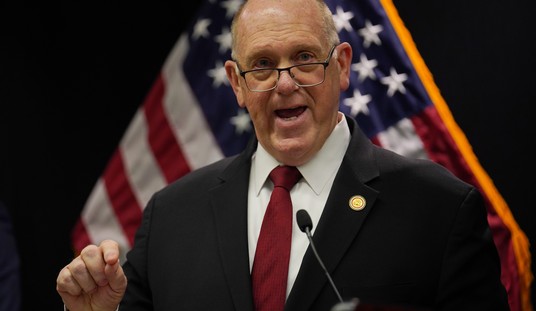Philip Klein has written an excellent piece for the Washington Examiner walking readers through Elizabeth Warren’s history as a public policy con artist. The eventual focus of the piece is her Medicare for All plan but before he gets to that he points to problems with her earlier work. If you’ve seen Warren stump speech about health care, she always cites her work on bankruptcy as something that motivates her drive for a single payer system. But her work on bankruptcy has problems:
More egregious were two studies she did on medical bankruptcy in which she and her co-authors, using faulty methodologies, exaggerated the number of people forced into bankruptcy. As Aparna Mathur, an economic policy scholar at the American Enterprise Institute explains, Warren’s work “is flawed and overstates the extent to which people file for bankruptcy due to medical reasons.”
The 2005 study reported that half of bankruptcy filers had cited medical causes. However, the definition of medical causes included, among other factors, drug, alcohol, and gambling addictions. An updated study Warren did in 2009 found that “62.1% of all bankruptcies in 2007 were medical.” But even the survey results from the study itself found that just 29% of respondents said they were filing bankruptcy due to medical bills. To get to 62%, among other additions, Warren included filers who said they lost work time or income due to illness. Under the Warren definition, somebody could have $70,000 in credit card debt and report some lost time at work due to an illness, and it would be categorized as a medical bankruptcy.
A 2018 study published in the New England Journal of Medicine, which looked at filings among those who had been hospitalized, found that hospitalizations led to just 4% of bankruptcies among non-elderly adults. The authors assumed this would capture most medical bankruptcies because most people with costly illnesses would likely have been to hospitals at some point.
Her approach to Medicare for All seems equally loose with the facts. I wrote about some of the fantasy math she engages in last week. But Klein points out how fantasy math is part of the con:
As a demonstration of how unserious Warren’s plan is, as part of the rollout, her campaign released a calculator, urging people to use it “to find out what Elizabeth’s plan for Medicare for All will mean for you.” But users quickly found out that whatever they entered as the amount they spend on healthcare was the amount that the calculator claims they’d save. As of this writing, I entered that I spent $900 trillion on healthcare, and a page came up with the banner “More Money In Your Pocket” and told me: “You’d bring home an estimated $900,000,000,000,000 more per year under Elizabeth’s Medicare for All plan.”
Warren’s plan somewhat magically reduces the estimated 10-year cost of Medicare for All (about $34 trillion) by $14 trillion. Klein looks at those deductions and concludes none are likely to save close to what Warren estimates they will. On the revenue side of the equation, things are just as bad. This week, Avik Roy published his estimate of the impact of Warren’s plan. Here’s what he said about her new taxes:
Warren and her advisors estimate that her proposed tax increases and other policy changes will increase federal revenue by $21.1 trillion from 2020 to 2029; we estimate that they will raise $12.1 trillion over that period. We estimate that slower economic growth will lead to a loss of $3.3 trillion in additional tax revenue, and that the size of the U.S. economy will be 12.5% smaller in 2029 due to a decade of slower economic growth. Slower job growth will primarily harm those whose incomes and employment prospects are below the U.S. median.
So maybe she’s off by $9 trillion, we’re not going to let that bother us, are we? Surely the billionaires can cough up more if we squeeze them hard enough. Both Avik Roy and Philip Klein cite Megan McArdle who wrote recently that Warren’s wealth tax and tax on unrealized gains would quickly deplete the fortunes of America’s billionaires. That outcome may be a guaranteed applause line at the Democratic convention, but as a long-term plan to fund health care it’s very stupid:
After adding in the ultra-millionaire’s tax and factoring in the other capital taxes Warren wants to levy — on financial transactions, on unrealized capital gains, on corporations — we’d be asking every billionaire to hand over more than two-thirds of their total wealth over a 10-year period. If the government actually managed to collect it, their fortunes would rapidly erode — and so would tax collections. The plan might be a good way to smash wealth, but it’s a terrible way to fund the nation’s health-care system.
McArdle concludes, “The best you can say for all of this is that none of it will happen.” And that’s the biggest con of all. Warren is hoping to get elected based on a plan that has no chance of passing Congress. Simply put, there aren’t nearly enough socialists in office to pass it. Even if there were, once the plan becomes an actual bill, the CBO would set fire to all of Warren’s fantasy math and she would finally be forced to admit the obvious, i.e. taxes will have to go up substantially on the middle-class. That’s how they do it in Scandinavia, after all. When the real numbers come out, M4A’s popularity will plummet. But Warren seems to think she’ll be able to con enough people for long enough to get this over the threshold. I think most Americans, having been burned once by “If you like your plan…” promises, are going to be much more wary this time around.








Join the conversation as a VIP Member